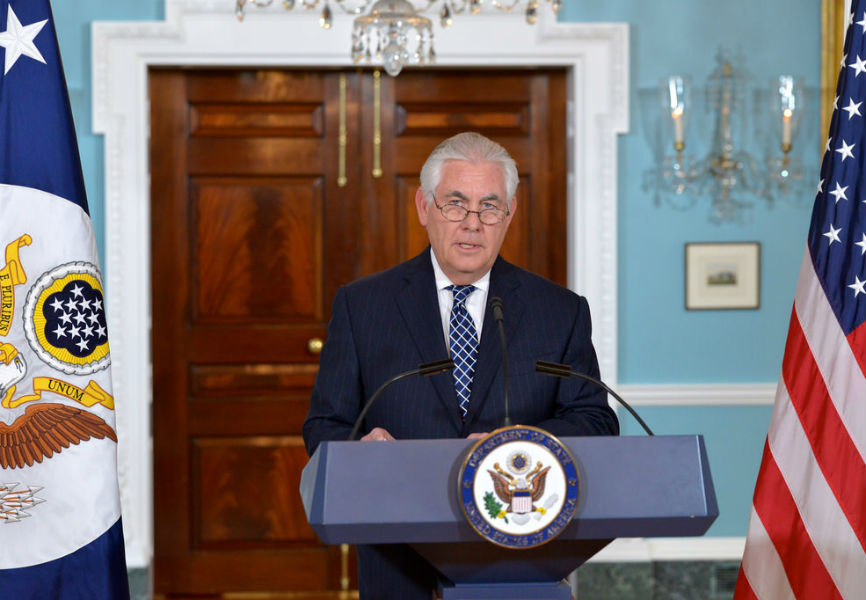U.S. Secretary of State Rex Tillerson deserves better than some of the shots fired at him lately, particularly in a scathing Washington Post op-ed by former George W. Bush aide Michael Gerson labeling him a "huge disappointment." It was always going to be an uphill battle for him to be an effective diplomat-in-chief. President Trump has empowered his son-in-law Jared Kushner, who is essentially acting as the nation's Prime Minister, to vet major foreign policy decisions while sitting just steps from the Oval Office. Given that Trump is frequently most influenced by the last person he sees before making important decisions, Foggy Bottom might as well be in North Dakota.
Still, Tillerson has had some significant foreign policy wins of late. The unanimous U.N. Security Council vote to endorse new sanctions against North Korea on Aug. 5 is at the top of the list. Tillerson's assertiveness on the issue, along with that of U.N. Ambassador Nikki Haley, helped rally allies and rivals alike to back the toughest sanctions to date against the Kim Jong Un regime. And if there's one foreign policy official from his Administration whom Trump trusts to deal with Russia, it is Tillerson, thanks in part to the relationships he built with Russian President Vladimir Putin and others in the Kremlin during his time as ExxonMobil CEO. When Trump met with Putin on July 7 at the G-20 Summit in Hamburg, it was Tillerson whom he brought with him, an important vote of confidence from the President given just how sensitive the Russia issue has become at home.
But Tillerson still struggles to effectively manage his State Department. He spent more than 40 years at ExxonMobil--and over 10 as CEO--but State Department decisionmaking is nowhere near as top-down as inside the energy giant. An effective Secretary of State must empower seasoned foreign policy professionals and channel their significant expertise into serving the President's agenda. Colin Powell, for example, did this exceedingly well; by all accounts, Tillerson is much more insular and reliant on a smaller staff than his predecessors, and it shows. A Secretary of State must manage, but also inspire, the country's diplomatic corps. On that front, Tillerson has fallen short.
So while he deserves mixed reviews, Tillerson's job performance 200 days into the Administration should be graded on a curve, given the extenuating circumstances the Trump presidency has imposed on him. He might have fared much better in a "normal" Administration, where his business background and managerial experience would inject new energy into an at-times sclerotic institution. He's been playing a weak hand moderately well. Given the threats facing the world in 2017, it's far from clear that that will be enough.
This piece was originally published in TIME.

